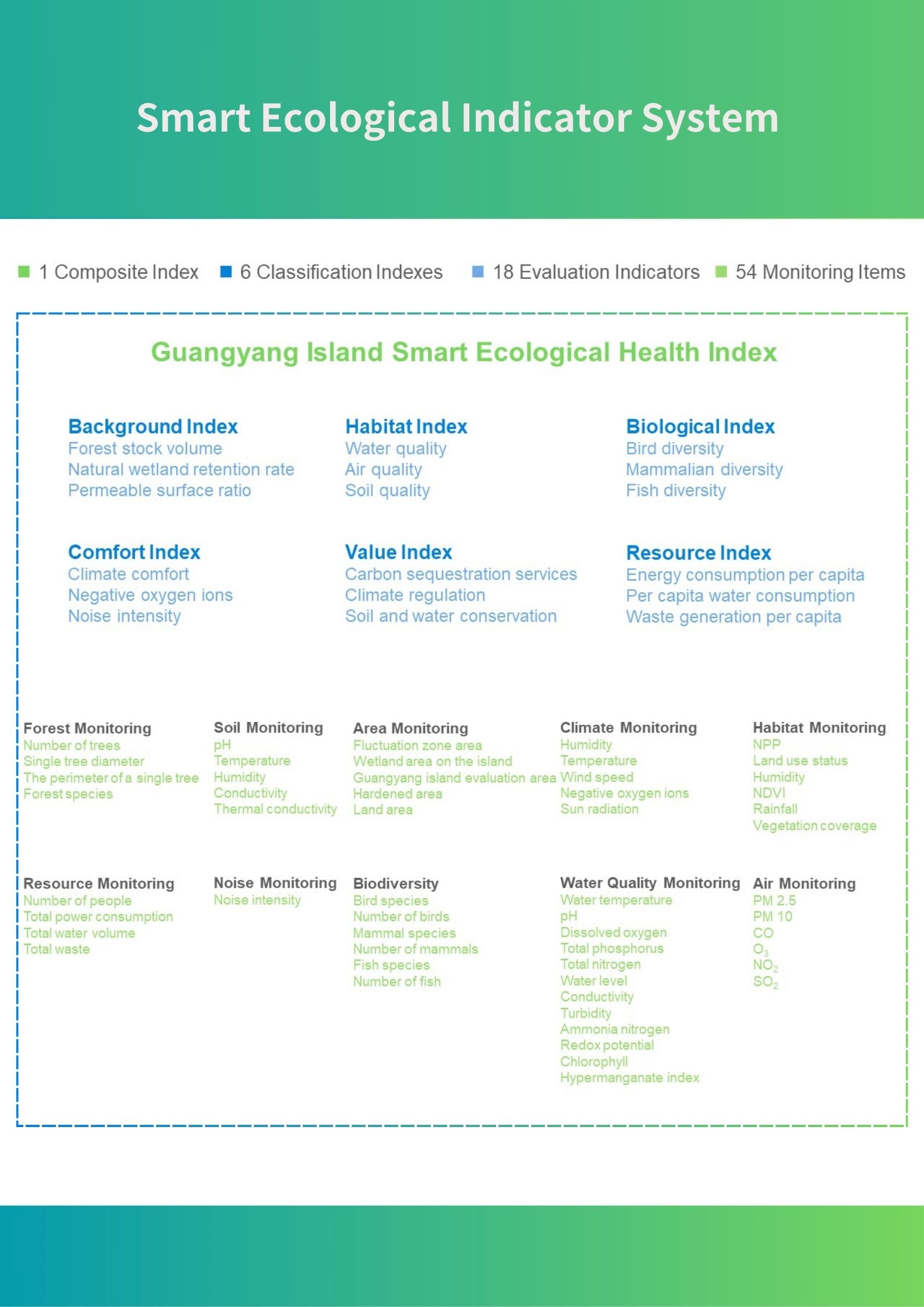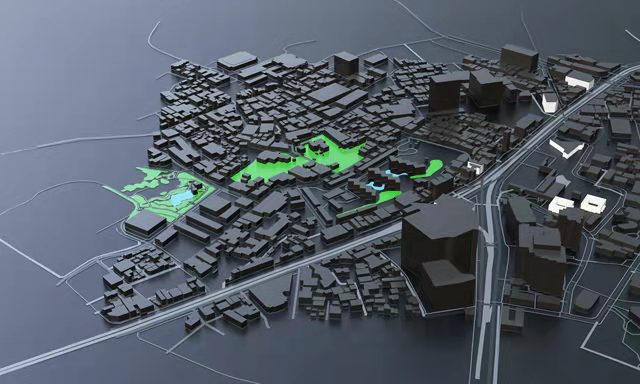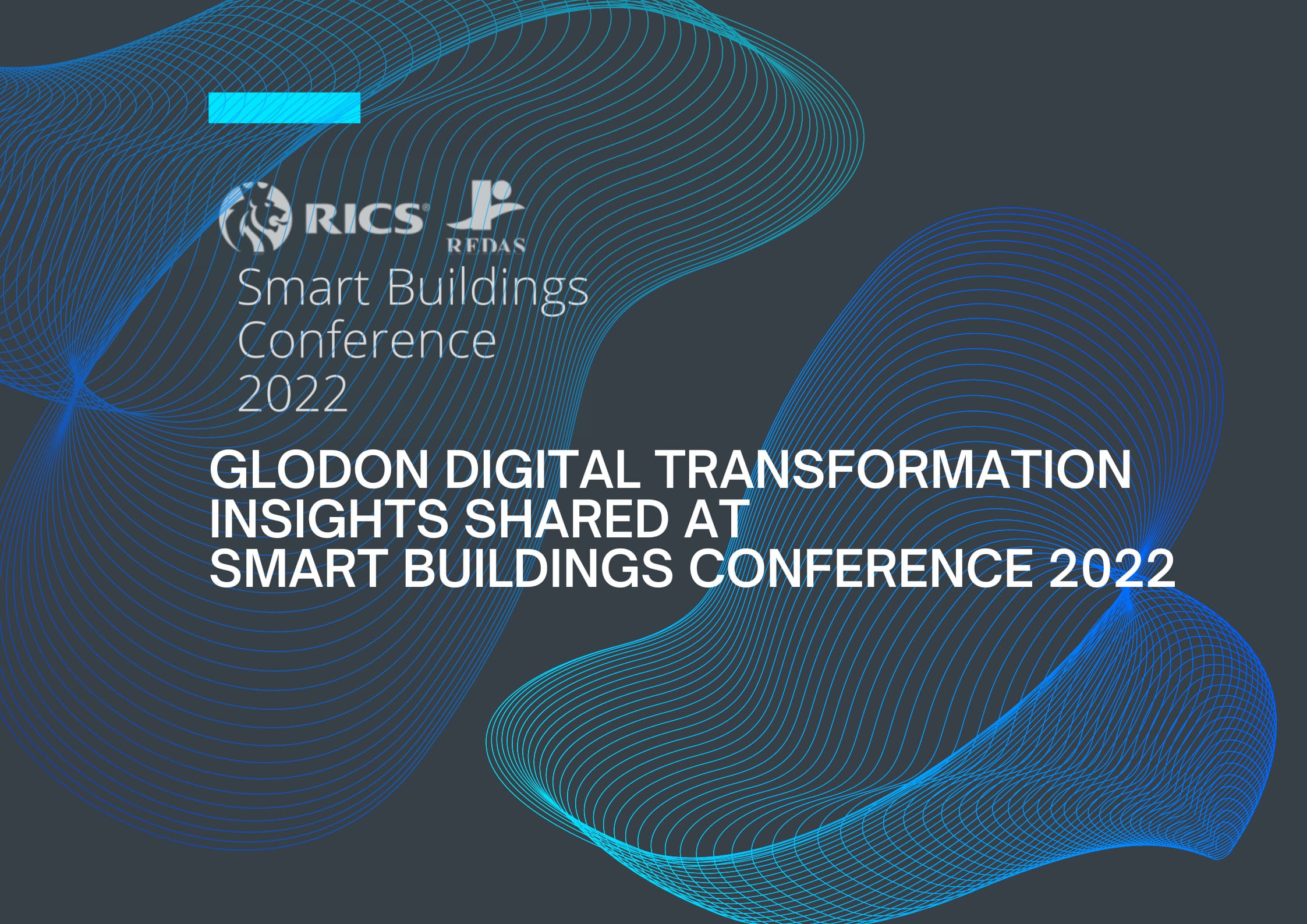Nov 22.2023
A Green and Low-Carbon Model Project with EIM and Digital Twin
The "Guangyang Island Smart Project," implemented by Glodon, has been a remarkable success in terms of ecological preservation and management. Since its launch in 2021, the project has delivered impressive results, including a 20% increase in the Habitat Index, indicating significant improvements to the island's ecosystem, and a 15% enhancement in Ecological Health.
One of the key achievements of the project is the centralization of project management, resulting in a 30% reduction in workforce demand. Through digital remote management, the project has successfully coordinated the efforts of 19 projects, 115 companies, and 6,120 users simultaneously. This efficient coordination has not only accelerated the progress of restoration projects by 20%, but it has also been achieved with zero accidents.
The project has also focused on improving the experience of visitors to the island. Since October 2021, the implementation of tourist mobile services has greatly enhanced the experience of over 260,000 people, providing them with convenient and personalized services during their visit.
In addition to the ecological and visitor-focused achievements, the project has also prioritized sustainable construction. Four green buildings on the island have been designed to significantly reduce carbon emissions and lower energy consumption by 10% during their operation. This commitment to green construction contributes to the overall environmental goals of the project.

A Sustainable Ecological Oasis: Recognized as a Green and Low-Carbon Model Project
Guangyang Island, situated in the Chongqing municipality of the Yangtze River spanning roughly 10 square kilometers during the dry season. It is renowned as the largest river island in the upper reaches of the Yangtze River and holds significant ecological value. The "Smart Project" aims to transform Guangyang Island, once planned as a real estate development area, into a smart ecological wonderland.
In recognition of its efforts, the "Smart Project" of Guangyang Island has been included in the "Global Sustainable Development Commercial Case Collection: Green and Low-Carbon Model Case" and was presented at the 20th UN Climate Change Conference in 2022.
Revitalization and Transformation: Towards a Sustainable Future
Until 2016, Guangyang Island was primarily designated for extensive real estate development, with ambitious plans to construct over 3 million square meters of buildings. Unfortunately, this focused development phase had severely disrupted the Island's delicate ecosystem. Recognizing the importance of Guangyang Island's ecological significance in the upper Yangtze region, the city took action in 2016 by halting ongoing real estate projects and reassessing the Island's purpose. It was then repositioned as an opportunity for ecological restoration and innovation.
Glodon firmly believed in enhancing and preserving ecosystems, integrating that Guangyang Island's development should encompass the realization of ecological, economic, and social values in a holistic manner. The objectives encompass various aspects, including the enhancement and preservation of ecosystems, the integration of living spaces with the natural environment, and the sustainable economic viability of Guangyang Island. In essence, these objectives translate into the principles of "smart ecological governance, green development, intelligent experiences, and long-term sustainable operations."
Revolutionizing Infrastructure: Key Applications
Building a Comprehensive Smart Infrastructure
The “Guangyang Island Smart Project” leveraged cutting-edge 5G technology to establish an island-wide communication network, enabling real-time data transmission from the smart ecological facilities. Furthermore, the project employed various remote sensing technologies and fieldwork to construct a robust data center, forming an extensive spatial big data repository for comprehensive ecological monitoring and management.
To ensure the acquisition of real-time ecological data, the project deployed 194 ecological monitoring IoT devices for monitoring water quality, meteorology, air quality, and bird species.
Constructing an Ecology Information Modeling (EIM) Platform
Integrating BIM, CIM, 3DGIS, and other technologies, the project established an Ecology Information Modeling (EIM) platform. The EIM platform incorporates a Data Center, IoT Center, and Spatiotemporal Center, allowing for the integration of data from multiple sources, efficient processing of massive data, real-time data sharing, and data visualization. This digital foundation for the ecological environment supports various smart applications.
Developing Four Smart Application Scenarios
Glodon played a key role in the development of four Smart Application scenarios that are driving the progress of smart infrastructure on Guangyang Island. These scenarios include:
1.?
Smart Ecology:
In collaboration with the Chinese Academy of Sciences, Glodon
innovatively introduced an ecological index system for Guangyang Island. The
entire island's ecological elements were digitally reconstructed to create an
ecological database. An intelligent ecological monitoring network allows for
real-time monitoring of ecological conditions, dynamic ecological risk alerts,
and timely resolution of ecological issues.
2.???
Smart Construction:
The project implemented a comprehensive project management system
that covers planning, design, construction, and operation and maintenance. By
utilizing BIM technology, a digital twin was created to enhance visualized,
refined, and intelligent O&M management.
3.? ?
Smart Scenery:
A holistic eco-experience model for the island was created,
integrating online and offline experiences such as living, working,
sightseeing, entertainment, and shopping. This model promotes eco-awareness and
provides an enriching experience through mobile applications.
4.??? Smart Management: Through the establishment of a comprehensive smart management system based on the EIM platform, personnel, events, and equipment are effectively managed, leading to improved remote coordination and cooperation and creating a resilient and safe island.
Establishment of an Integrated Smart Governance Center
The project established an Operations Center on Guangyang Island, integrating information technologies through the EIM platform to create five major integrated governance systems: smart inspection, smart alarms, smart control, smart dispatch, and smart services. This approach enables closed-loop management of personnel, events, and equipment, enhancing operational efficiency and reducing costs.
This project not only rehabilitates the local ecological environment but also functions as a pilot
program for other Smart Projects. The experiences and lessons learned from
Guangyang Island will be distilled into replicable and scalable ecological
governance and development, serving as an exemplar for sustainable coexistence
between humans and nature.
Glodon's Commitment to Sustainable Construction
Glodon has demonstrated its commitment to ESG principles and its expertise in providing comprehensive digital support for the systematic development of the construction sector throughout the entire planning, design, construction, and operation process of Guangyang Island. This commitment has played a pivotal role in shaping the innovative approach to smart ecological construction.
As a proactive advocate of "digital
building," Glodon actively engages in global efforts to combat climate
change. The company emphasizes leveraging digital technology to facilitate the
green and low-carbon transformation of the construction industry, guiding the
entire lifecycle of the construction sector toward sustainable and eco-friendly
development. As a frontrunner in China's digital construction landscape, Glodon
upholds the mission of leveraging technology to create a better living and
working environment and is dedicated to realizing its vision of making every
project a success.













